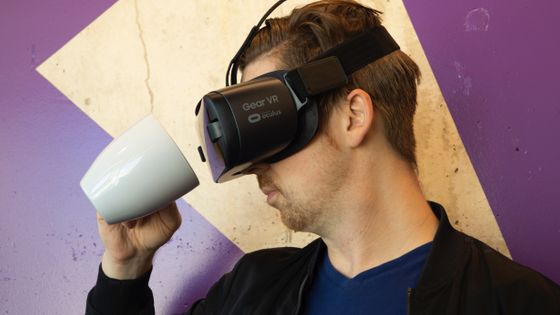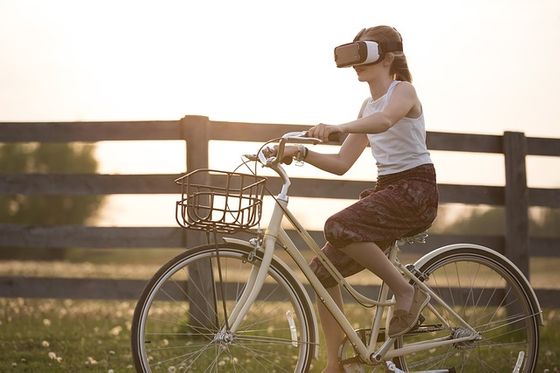The future will come when mental illness can be treated with VR technology

by
VR technology is expected to be useful not only in entertainment but also in the medical field, and past studies have suggested that it can be useful for training to overcome lower- class paralysis and phobia . The prospect of mental health with such VR technology is summarized by Scientific American Scientific Magazine Scientific American .
Virtual Reality Might Be The Next Big Thing For Mental Health-Scientific American Blog Network
https://blogs.scientificamerican.com/observations/virtual-reality-might-be-the-next-big-thing-for-mental-health/
How Virtual Reality Is Helping Heal Soldiers With PTSD
https://www.nbcnews.com/mach/innovation/how-virtual-reality-helping-heal-soldiers-ptsd-n733816
Automated virtual reality therapy helps people overcome phobia of heights | Science | The Guardian
https://www.theguardian.com/science/2018/jul/11/automated-virtual-reality-therapy-helps-people-overcome-phobia-of-heights
◆ History of psychotherapy by VR
Attempts to treat mental illness using VR technology have been conducted for a long time, and in 1997 a VR treatment program ' Virtual Vietnam Therapy ' for veterans suffering from PTSD has been offered by researchers at the Georgia Institute of Technology. It has been implemented. Of the images below, the image on the left is the Virtual Vietnam Therapy VR screen, and the image on the right is using Virtual Vietnam Therapy.

Virtual Vietnam Therapy has been effective since that time, and all 10 veterans with PTSD who experienced the Vietnam War at VR have shown an improving trend. Similarly, when VR treatment was conducted on survivors of the
In more recent cases, there has also been a report that VR therapy by 'Virtual Iraq' has saved 2000 soldiers suffering from PTSD due to the war in Iraq .
In mental medicine using VR, a treatment called exposure therapy is taken. Exposure therapy is a type of behavioral therapy that targets the patient to fear etc. It is a method used to treat not only PTSD but also anxiety disorders and certain phobias .

by
For example, just as a patient with height phobia climbs up a building under the guidance of a doctor, general exposure therapy makes the patient face targets of fear or distress under a well-secured control. On the other hand, exposure therapy using VR only uses VR devices in a safe room, so it is possible to implement exposure therapy much cheaper and safer than real-world treatment.
In addition, there are also benefits unique to VR. Prof. Stefan Bouchard, Chair of Research on Clinical Cyber-Psychology at the University of Quebec, said, 'As part of the study, patients with height fear had jumped off a cliff in VR space,' said VR exposure therapy. It says that it is excellent in that it can also experience impossible in the real world.
VR exposure is also known to be particularly effective in PTSD patients with concurrent depression. Albert Skip Rizzo, director of medical virtual reality at the University of Southern California's Creative Technology Institute , said, “Depressive patients have less access to the traumatic experience, so symptoms are fixed. On the other hand, with VR, it is also possible to reproduce things that are difficult to reproduce, such as a war experience, which helps the patient to deal with trauma. '
◆ Prospect of VR therapy
As of 2019, most VR experience virtual space through sight and hearing through headsets, but in the future, more effective exposure will be achieved by the emergence of VR technology that also reproduces the sense of smell and touch It is expected that the therapy can be implemented.

by
In addition, VR technology is expected to be effective not only in treatment but also in testing and diagnosis. Using VR makes it possible to get objective feedback while giving all subjects the same experience, which helps to diagnose developmental disorders such as ADHD and autism and schizophrenia.
In addition, research teams at Cambridge University and the University of London have succeeded in finding Alzheimer's disease with higher accuracy than conventional testing methods by testing Alzheimer's disease using VR. This focuses on the fact that Alzheimer's disease causes not only memory impairment but also visual spatial cognitive impairment , and the conventional writing test is 79% accurate, whereas the movement test in 3D space reproduced by VR According to the report, it was possible to identify patients with early-stage Alzheimer's disease with as much as 93% accuracy.

by Pexels
We are also looking for ways to combine VR and AI. In an experiment conducted by Daniel Freeman, a professor of clinical psychology at Oxford University, all 49 subjects who received a virtual therapist treatment for height phobia treated with an average of 68% of their self-diagnostic questionnaires I'm replying that it is relaxing. AI can be delivered as an application for VR devices and smartphones, so it has the advantage of being much cheaper than going to an actual psychosomatic department and being treated by a psychiatrist, and having less hurdles for patients.
However, some say that self-therapy using AI is also dangerous. 'If you're a real psychiatrist, you can stop looking at the patient and stop testing,' said Skip Rizzo. 'It's difficult for AI.' On the other hand, 'Still, in the field of psychology in the near future,' Why can psychiatrists be able to beat AI and virtual therapists? ' He stated that the treatment of mental disorders would be more advanced by doing.
Related Posts:
in Science, Posted by log1l_ks






